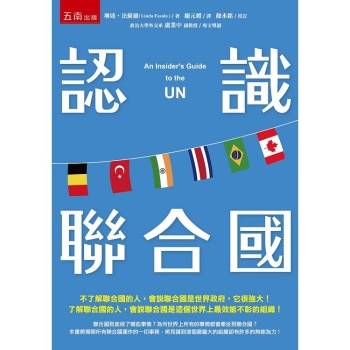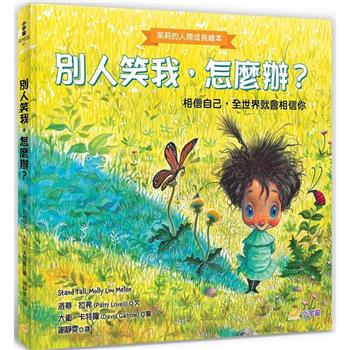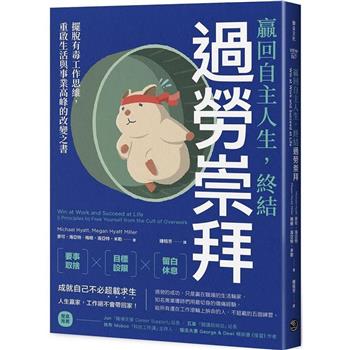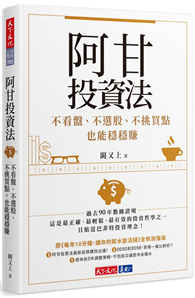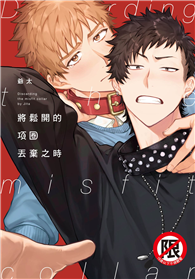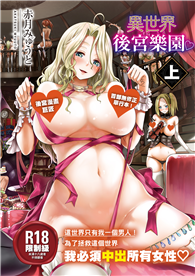【核心賣點】
(1) 本書為英文專業理論著作,對象為對劇場導演及營運有一定認識之海內外人士。
(2) 作者為亞洲藝術發展殿堂級人馬
(3) 此書匯聚作者30年來專業而有價值的經驗精華,實用性與理論性兼備,針對解決的問題有普遍廣泛性。
(4) 封面使用白牛皮包裹書咭,穿線裸脊,內文印白及特黑,讓讀者享受細膩的閱讀質感。
【一句話推介】
It is a reflection of one of the most influential theatre directors in Hong Kong, Tang Shu-wing tells us his 30 years practice on the theatre through Acting and Directing.
【內容簡介】
本書是一本實用書,更是作者鄧樹榮三十年來透過表演和導演得到的反思。表演和導演這兩個領域主要與人打交道,其他外物和視覺元素只是次要。本書所提出的思想和方法均來自鄧樹榮在創作中的親身體驗,非常實用,概念清晰。他試圖解決在表演藝術領域——尤其是在戲劇領域上——一些非常普遍的問題,也總結了他從演三十年來的感悟:自己首先是一個人,然後是一個藝術家。
書名中的三個級別各有所指,一級是指創意工作中絕對必要的東西,缺少了作品就不會成功,二級是指你可以增加或放棄的元素,第三級指的是不能出現在創作中的事情。ABC說的是陰陽之理,如果A是事物的某種狀態,那麼B就是它的對立面,而C則是介乎於兩者之間。誠意推薦予在表演藝術方面有專業經驗的人,以及所有初學者、熱愛生活的人,定會從中得到無限啟發。
It is not a basic tool-book but a reflection of the author in his 30 years practice on the theatre through Acting and Directing. These two areas deal primarily with human being, while all other external objects and scenic elements are only in its service. The ideas and methods proposed in this book all come from his personal experience in his creative works which are very practical and possessing clearly articulated concepts which originate from how he perceives life. The issues which he is trying to address are very universal in the field of performing arts, especially in theatre. At the end, he concludes with some important life experiences which he has accumulated until now so that he is firstly a man, then an artist.
The Three Levels in the title mean: Level One, Level Two and Level Three. Level One refers to those things which are absolutely necessary in your creative work, without which it will crumble, Level Two refers to those things which you can have or you can do away with. Level Three refers to those things which must not appear in your creative work.
ABC refers to a principle of Yin and Yang. If A is a certain state of thing, then B is its opposite, and C is something in between, or elsewhere. Though this book aims at readers who have already got some sort of professional experiences in performing arts, beginners and people who simply love life will also find it interesting and inspiring.
名人推薦
Like the great masters of Western theatre of the last century - Stanislavski, Grotowski, Chekhov, Barba, Brook - Shu-wing proposes a systematisation of the laws of creating a show and of the actor's craft. He does this with an almost scientific method, but at the same time, he is aware that all the craftsmanship acquired and practiced is subject to something that we can call a vision, an intuition.
Enrico Bonavera
Official Harlequin, Piccolo Teatro, Milan
Tang Shu-wing is a multi-lingual internationalist and that fact alone gives his insights a rare perspective at a time when intercultural exchange and collaboration is singularly challenged. He is able to embody traditions from Asian theatre in which form and structure are reduced to their essentials. But conversely, he acknowledges the complexity of factors influencing theatre-making around the world in the current moment. This book is a touchstone for navigating that thicket of choices and obstacles.
Elizabeth Bradley
Arts Professor, Department of Drama, Tisch School of the Arts
In this illuminating book, Shu-wing, has set out a number of paths which actors and directors canuse to find a way through the forest of an artistic process. The wisdom he sets down is practical, direct and simple, a wisdom arrived at after a lifetime of testing. He offers no simple solutions, but he indicates directions to travel in, and how to walk without fear and in harmony with others.
Dominic Dromgoole
Former Artistic Director, Shakespeare’s Globe
| FindBook |
有 4 項符合
The Three Levels of ABC:reflections on acting and directing的圖書 |
 |
The Three Levels of ABC - reflections on acting and directing 作者:Tang Shu-Wing 出版社:商務 出版日期:2023-11-06 語言:英文 規格:普通級 |
| 圖書館借閱 |
| 國家圖書館 | 全國圖書書目資訊網 | 國立公共資訊圖書館 | 電子書服務平台 | MetaCat 跨館整合查詢 |
| 臺北市立圖書館 | 新北市立圖書館 | 基隆市公共圖書館 | 桃園市立圖書館 | 新竹縣公共圖書館 |
| 苗栗縣立圖書館 | 臺中市立圖書館 | 彰化縣公共圖書館 | 南投縣文化局 | 雲林縣公共圖書館 |
| 嘉義縣圖書館 | 臺南市立圖書館 | 高雄市立圖書館 | 屏東縣公共圖書館 | 宜蘭縣公共圖書館 |
| 花蓮縣文化局 | 臺東縣文化處 |
|
|
圖書介紹 - 資料來源:博客來 評分:
圖書名稱:The Three Levels of ABC:reflections on acting and directing
內容簡介
作者介紹
作者簡介
鄧樹榮(Tang Shu-Wing)
國際知名劇場導演,其作品超過50部,媒體譽之為「香港最具才華的劇場導演之一」。鄧先生出生於香港,先後於皇仁書院及香港大學法律學院畢業,其後負笈巴黎新索邦大學攻讀戲劇研究,深受形體劇場及舞蹈藝術影響。
2004年,鄧先生出任演藝學院戲劇學院講師,短短五年間晉升至院長,成為一時佳話。他以精湛的訓練方法及豐富的創造力培養了大批新演員,其作品不但為學院帶來多個獎項,還將形體劇場及簡約美學推廣至海內外。2011年,鄧先生成立鄧樹榮戲劇工作室,致力於跨界別及跨文化創作,進一步將香港戲劇帶上國際舞台。他的無對白動作喜劇《打轉教室》,至今上演127場,觀眾達25,000人。
鄧先生的理論著作《梅耶荷德表演理論:研究及反思》、《泰特斯:簡約美學與形體劇場》及《書寫塞納河開始──我對劇場的思辨與演繹》,均對華語劇界影響深遠。鄧先生扶掖後進亦不遺餘力,且獨具慧眼。
他在2014年前設立形體戲劇青年專業訓練課程,希望培育出香港未來的藝術大師。鄧先生關懷社會、熱心公益,擔任多項公職,亦曾任康樂及文化事務署榮譽顧問多年,對文化界貢獻良多,有目共睹。鄧先生曾獲三屆香港舞台劇獎最佳導演獎、2008年藝術發展局戲劇界別的藝術成就獎、2012年藝術發展獎戲劇界別年度最佳藝術家獎、行政長官社區服務獎狀,並獲頒嶺南大學榮譽院士及法國文化部藝術及文學軍官勳章。
Tang Shu-wing, MH
Regarded as one of the most influential theatre directors in Hong Kong, Tang is the Artistic Director of Tang Shu-wing Theatre Studio and former Dean of the School of Drama of the Hong Kong Academy for Performing Arts. Recent signature works include King Lear and Bhagavad Gita. His major awards include Medal of Honour by HKSAR, the Award for Outstanding Contribution in Arts by the Hong Kong Arts Development Council, Honorary Doctorate of the Hong Kong Academy for Performing Arts, and I’Officier de l’Ordre des Arts et des Lettres by the French Ministry of Culture.
鄧樹榮(Tang Shu-Wing)
國際知名劇場導演,其作品超過50部,媒體譽之為「香港最具才華的劇場導演之一」。鄧先生出生於香港,先後於皇仁書院及香港大學法律學院畢業,其後負笈巴黎新索邦大學攻讀戲劇研究,深受形體劇場及舞蹈藝術影響。
2004年,鄧先生出任演藝學院戲劇學院講師,短短五年間晉升至院長,成為一時佳話。他以精湛的訓練方法及豐富的創造力培養了大批新演員,其作品不但為學院帶來多個獎項,還將形體劇場及簡約美學推廣至海內外。2011年,鄧先生成立鄧樹榮戲劇工作室,致力於跨界別及跨文化創作,進一步將香港戲劇帶上國際舞台。他的無對白動作喜劇《打轉教室》,至今上演127場,觀眾達25,000人。
鄧先生的理論著作《梅耶荷德表演理論:研究及反思》、《泰特斯:簡約美學與形體劇場》及《書寫塞納河開始──我對劇場的思辨與演繹》,均對華語劇界影響深遠。鄧先生扶掖後進亦不遺餘力,且獨具慧眼。
他在2014年前設立形體戲劇青年專業訓練課程,希望培育出香港未來的藝術大師。鄧先生關懷社會、熱心公益,擔任多項公職,亦曾任康樂及文化事務署榮譽顧問多年,對文化界貢獻良多,有目共睹。鄧先生曾獲三屆香港舞台劇獎最佳導演獎、2008年藝術發展局戲劇界別的藝術成就獎、2012年藝術發展獎戲劇界別年度最佳藝術家獎、行政長官社區服務獎狀,並獲頒嶺南大學榮譽院士及法國文化部藝術及文學軍官勳章。
Tang Shu-wing, MH
Regarded as one of the most influential theatre directors in Hong Kong, Tang is the Artistic Director of Tang Shu-wing Theatre Studio and former Dean of the School of Drama of the Hong Kong Academy for Performing Arts. Recent signature works include King Lear and Bhagavad Gita. His major awards include Medal of Honour by HKSAR, the Award for Outstanding Contribution in Arts by the Hong Kong Arts Development Council, Honorary Doctorate of the Hong Kong Academy for Performing Arts, and I’Officier de l’Ordre des Arts et des Lettres by the French Ministry of Culture.
目錄
FOREWORDS
(Sequence by alphabetical order of surname)
/ ENRICO BONAVERA
/ ELIZABETH BRADLEY
/ DOMINIC DROMGOOLE
PREFACE
PERSONAL JOURNEY
CHAPTER 1 /
ACTING
CHAPTER 2 /
DIRECTING
CHAPTER 3 /
PERSONAL EXPERIENCES
EPILOGUE
(Sequence by alphabetical order of surname)
/ ENRICO BONAVERA
/ ELIZABETH BRADLEY
/ DOMINIC DROMGOOLE
PREFACE
PERSONAL JOURNEY
CHAPTER 1 /
ACTING
CHAPTER 2 /
DIRECTING
CHAPTER 3 /
PERSONAL EXPERIENCES
EPILOGUE
序
Preface
This is a book about theatre, about how I see theatre. It is also about life. Though it is aimed atthose who already have some sort of professional experience in the performing arts, it is not a book of basic tools. However, it may be equally interesting for beginners and for those who simply love life.
Art is about sentiment and expression, about what you feel and how you express it. An artist needs to enhance the capacity to feel and the capacity to express. In between, there is a mysterious process which is indescribable.
Performing artists use their bodies to express what they feel.
In theatre-making, we are always dealing with the human being. Even if we use external objects or other scenic elements, these are always employed in the service of the human being, i.e., the mind and the body. The human mind is always a mystery. It is not visible even if it may wander here and there. But the human body is visibly neutral until it expresses something.
What has led me to write this book? It is a call from within, to share my vision and my principles of practice with others. Sharing is a natural habit of homo sapiens. It is also a way to communicate, to affirm. Descartes said, “I think, therefore I am.” I prefer to say, “I give, therefore I am.”
When an artist expresses a feeling, they give out something of themself. Giving out has a stronger density than taking in because you are eliminating part of yourself. You become lighter and more transparent. Daily life rarely gives you this opportunity.
In writing this book, I am giving out part of myself. Perhaps it is the mission of my life. Looking at the state of the world today, I always say to myself: If I am interested in doing something and have the means to do so, I should do it as soon as possible, before it is too late.
The Three Levels in the title are Level One, Level Two and Level Three. Level One refers to those things which are absolutely necessary in your creative work, without which the work will crumble. Level Two refers to those things which you may choose to use but are not essential to your work. Level Three refers to those things which must not enter into your creative work.
ABC refers to a principle of Yin and Yang. If “A” represents a certain state, then “B” is its opposite, and “C” is something in between, or elsewhere. The Three Levels and ABC, I am sure, apply to art and above all, to life.
I must express my gratitude to Bernice Chan, Stanley Wong, Molly Grogan, the Commercial Press(H.K.) Limited, Enrico Bonavera, Elizabeth Bradley and Dominic Dromgoole, Tang Shu-wing Theatre Studio and all the people who have contributed to the publication of this book.
This is a book about theatre, about how I see theatre. It is also about life. Though it is aimed atthose who already have some sort of professional experience in the performing arts, it is not a book of basic tools. However, it may be equally interesting for beginners and for those who simply love life.
Art is about sentiment and expression, about what you feel and how you express it. An artist needs to enhance the capacity to feel and the capacity to express. In between, there is a mysterious process which is indescribable.
Performing artists use their bodies to express what they feel.
In theatre-making, we are always dealing with the human being. Even if we use external objects or other scenic elements, these are always employed in the service of the human being, i.e., the mind and the body. The human mind is always a mystery. It is not visible even if it may wander here and there. But the human body is visibly neutral until it expresses something.
What has led me to write this book? It is a call from within, to share my vision and my principles of practice with others. Sharing is a natural habit of homo sapiens. It is also a way to communicate, to affirm. Descartes said, “I think, therefore I am.” I prefer to say, “I give, therefore I am.”
When an artist expresses a feeling, they give out something of themself. Giving out has a stronger density than taking in because you are eliminating part of yourself. You become lighter and more transparent. Daily life rarely gives you this opportunity.
In writing this book, I am giving out part of myself. Perhaps it is the mission of my life. Looking at the state of the world today, I always say to myself: If I am interested in doing something and have the means to do so, I should do it as soon as possible, before it is too late.
The Three Levels in the title are Level One, Level Two and Level Three. Level One refers to those things which are absolutely necessary in your creative work, without which the work will crumble. Level Two refers to those things which you may choose to use but are not essential to your work. Level Three refers to those things which must not enter into your creative work.
ABC refers to a principle of Yin and Yang. If “A” represents a certain state, then “B” is its opposite, and “C” is something in between, or elsewhere. The Three Levels and ABC, I am sure, apply to art and above all, to life.
I must express my gratitude to Bernice Chan, Stanley Wong, Molly Grogan, the Commercial Press(H.K.) Limited, Enrico Bonavera, Elizabeth Bradley and Dominic Dromgoole, Tang Shu-wing Theatre Studio and all the people who have contributed to the publication of this book.
|
